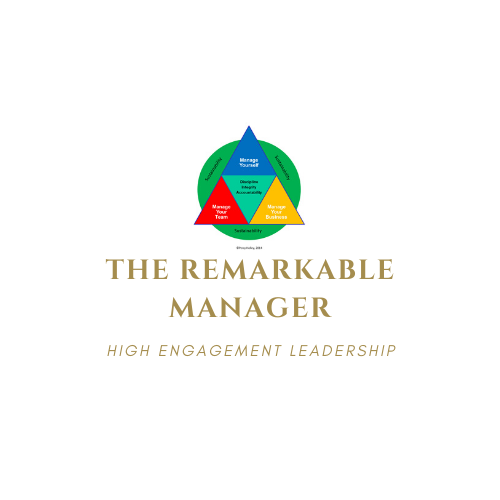"Your Focus Needs More Focus"
You may recognize the title of this article as a line from the movie "The Karate Kid" (2010). In the scene Mr. Han (Jackie Chan) is attempting to train Dre (Jaden Smith) while Dre is trying to convince Mr. Han that he has the focus required to do what Mr. Han is asking him to do. Of course, Mr. Han knows differently, and when he uttered those words, "your focus needs more focus," it resonated deeply with me. Focus is something I have always struggled with, and over the last 10-years of my coaching business, I have heard it from client after client, "I need to learn to focus."
Is Focus a Skill?
A friend once invited me to speak at an event he was sponsoring. On the morning of my speech, it was raining, so I offered to get the car and pick him up at the front of the hotel. As I pulled in front of the hotel, he was nowhere to be found, so I went into the hotel lobby to look for him. About this time, a tour bus with over 50 women arrived, and all the women were in the lobby, and all of them were talking. It was a loud and chaotic scene. It took me a few minutes to locate my friend standing in the middle of the lobby, his suitcase leaning against his leg and a newspaper in his hand. He was intensely focused on an article in the paper. He was so engrossed, and I did not want to interrupt him, so I took the suitcase off his leg and took it to the car. After waiting a few minutes more, I returned to the lobby to see him still reading his paper. We needed to go, so I tapped him on the shoulder and pointed toward the car. It was then that he looked down and noticed his suitcase, and more importantly, his computer case was missing. It was at this point that he began to scream that his bag had been stolen. As the lobby got very quiet, I quickly calmed my friend and pushed him toward the car, where all his belongings were safely stored away.
How could he have possibly been able to focus on what he was reading during the mayhem of the lobby and be so focused that he would not notice me taking his bag? I can't read a newspaper in a quiet library without looking up 2-3 times to see what everyone else is doing. I questioned my friend about this, and he explained how he learned the skill of focus. Until that moment, I had never considered this a skill that one could develop.
Developing the Skill of Focus
TV newscaster Diane Sawyer was once asked what she considered to be the secret to her success, and she replied, "I think the one lesson I've learned is there is no substitute for paying attention." In our hustle and hurry world of overbooked calendars and multitasking activities, this ability to focus and concentrate are skills that have been pushed away and forgotten. A fundamental problem for many of us is the high level of distraction that we face each day, but I am learning that you can learn to focus. Many also believe that when we multitask, we are increasing productivity. However, study after study tells us that multitasking is a quick way to non-productivity. Yet we do it without a second thought.
Author Daniel Goleman states that "Directing attention toward where it needs to go is a primal task of leadership." If you want to set yourself apart from others as a leader, learn the skill of focus and concentration. Here are some ideas to help you get started.
Have a plan – a lack of focus can often be traced to not having a clear picture of what it is that you want to accomplish. You need to know what success looks like. What is the desired outcome? A vague plan allows the mind to wonder.
Break projects into smaller and well-defined parts – the larger the project, the more likely it is that you will feel overwhelmed from time to time, and this causes distraction and lack of focus. Instead of trying to consume the elephant in one bite, break it into bite-size chunks so you can more easily schedule and complete portions of the project with greater focus.
Prioritize the chunks – whether it is the many small things you are trying to accomplish, or the bite-size chunks from a larger project, prioritize the things you need to get done. Ensure that you are always working on the most important things. If you are working on one task while a more significant, more important job is being left undone, you will not be able to give the smaller tasks the level of focus you need to. Big rocks first help you to clear your mind so you can focus, knowing that you are doing precisely what you are supposed to be doing.
Set a start and stop time – letting projects ramble on with no defined start and stops is a recipe for distraction. When you schedule a certain amount of time to work on one thing, it becomes easier to focus on that one thing. If something distracts you, you can push them off until the scheduled end time for this activity.
Take breaks – If you are finding it impossible to stay focused, get up, take a walk, have a glass of water, and allow your mind a few minutes to rest. Even just a minute or two can often be enough to re-frame the situation and will enable you to continue.
Dealing with Physical Distractions
Physical distractions are things like noisy environments, high activity environments, children running through the house, or colleagues at work walking, talking, and hovering around your cubicle.
- Choose your work area wisely – have a defined place where you can do your work. This needs to be away from high traffic and high noise areas.
- Keep the work area clear of items that distract – phones, email devices, twitter devices, family photos, desktop play toys. You know what they are. Put them somewhere else.
- Turn off technology – silence the email alarms and Facebook chimes. Give yourself the best chance to succeed. No alerts!
- Avoid high traffic areas – put your back to the crowd if it is not possible to be in a secluded room by myself.
- Avoid sitting in front of windows – wanting to "go out and play" can be a big distraction.
What About Mental Distractions?
The wandering mind can be infinitely more distracting than the physical distractions above. You can move away from the physical stuff, but your brain stays with you most of the time. What can you do to deal with a drifting mind?
- Keep a note pad handy – place a blank pad and pen next to your work area. When a distracting thought comes along, write it down and let it go. It is incredible how much better you can concentrate once your brain knows that I have captured the thought. Not writing it down keeps it floating around your head and telling your mind over and over not to forget.
- Remember the schedule – if you made a plan as mentioned above, remind yourself that you have a plan, and that time has been allotted for this work. This sounds a little silly, but knowing that you will be free to think about other things in an hour and a half makes a difference.
- Take a break – as I said above, if you just can't keep your mind focused on what you are doing, take a break. When you get away from work for 10 minutes or so, it will help to refresh yourself and regain the right perspective.
The skill of focus can be learned and mastered with the right amount of practice and patience. It will require intentional effort, but the payoff is big!
Question: What things have you done to increase your ability to focus?






Most likely, these unusual times have revealed your true habits. You may be very pleased with what you have learned about yourself, or you may be looking back at the last eight weeks and have very little to show for it.